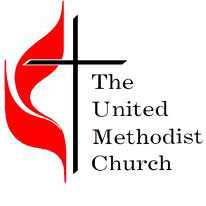

(By Walter Fenton, Good News). Writing to churches and clergy in the Iowa Annual Conference about financial challenges the conference faces, new Bishop Laurie Haller wrote, “Some of our clergy and congregations are making the decision to withhold apportionment payments to protest those who advocate for full inclusion of LGBTQ people in The United Methodist Church. This intentional action weakens our mutual covenant to be in ministry together here and around the world despite our differences.”
Bishop Haller is woefully misinformed if she thinks churches and clergy are withholding apportionments “to protest those who advocate for full inclusion of LGBTQ people in The United Methodist Church.”
Those who support the church’s sexual ethics, its teachings on marriage, and its ordination standards have never contested the right of LGBTQ+ people and their allies to “advocate” for changing the church’s teachings. They are not naïve; they understand people in a large denomination will not always see eye-to-eye on every matter. They know we have a polity, an orderly way of going about discerning God’s will, and they have willingly engaged in that process for decades. If this were not the case many would have started withholding apportionments long ago, perhaps as far back as the early 1980s.
Here, for Haller and other church leaders who are now learning about the crisis within our denomination, are just some of the actual reasons why some clergy and laity are withholding apportionments, particularly in annual conferences like Iowa.
- After the 2012 General Conference some LGBTQ+ people and their allies adopted a strategy of ecclesial disobedience. They disregarded the will of General Conference and our Book of Discipline by presiding at same sex weddings, and in a few cases UM clergy openly acknowledged they were in same-sex partnerships. But these acts only led a few congregations to withhold apportionments.
- In October of 2013 retired Bishop Melvin Talbert joined a growing list of clergy to preside at a same-sex marriage. His defiance gained national attention, and forced clergy to respond to perplexed and sometimes angry laity who could not understand how a bishop could preside at a same-sex wedding when the church explicitly said clergy are prohibited from doing so. This provocation led other congregations to withhold apportionments.
- In tense executive sessions at the Council of Bishops’ November 2013 gathering it instructed its president to file a complaint against Bishop Talbert. It took four months before the complaint was filed, and then another nine before the Western Jurisdiction College of Bishops quietly reported on the late afternoon of December 30, 2014 that a “just resolution” had been reached in the matter. The resolution was widely regarded as a sham since Talbert was in no way held accountable for his breach of church law. This mockery of the Discipline led still other congregations to withhold apportionments.